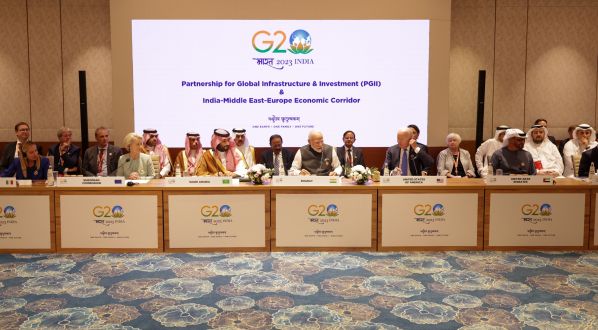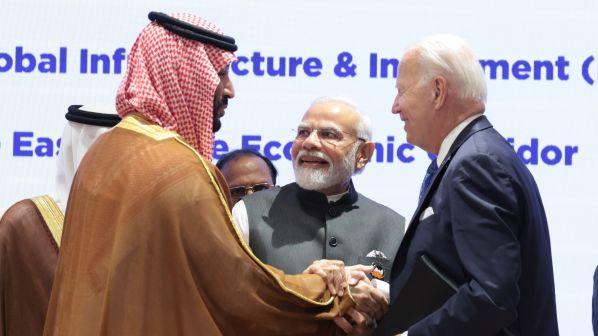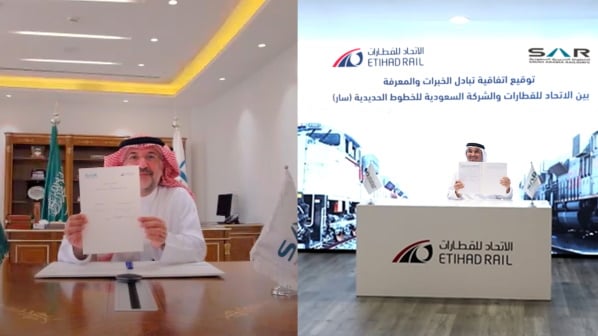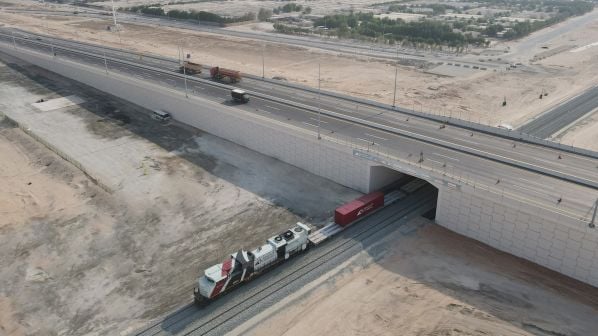A new commitment to develop an economic corridor from India to the Middle East and Europe, centred on a transcontinental railway running through the Arabian Gulf to Israel, was announced during the G20 summit in Delhi, India, on September 9.
Heralded by the United States president, Mr Joe Biden, as a “big deal,” the “landmark corridor” is expected to stimulate economic development by providing enhanced connectivity and economic integration across two continents. Biden was joined in signing the MoU by the leaders of the European Union (EU), France, Germany, Italy, India, Saudi Arabia, and the United Arab Emirates (UAE).
The Memorandum of Understanding (MoU) states that the India-Middle East-Europe Economic Corridor (IMEC) will consist of an eastern corridor, connecting India to the Arabian Gulf, and a northern corridor connecting the Arabian Gulf to Europe. The resulting cross-border railway will enable goods to move between India, the UAE, Saudi Arabia, Jordan, Israel and Europe. The project will also include the installation of new electricity and digital communications interconnections and a hydrogen pipeline along the entire length of the new railway corridor.
The MoU states that the participants commit to meet within the next 60 days to develop and agree an action plan with relevant timescales for delivery. No funding commitments have yet been made for the project.

The railway
Further details are currently scarce. Logically, the new corridor would use the recently-completed Etihad Rail network in the UAE, which stretches from Fujairah Port in the northeast of the country, via Dubai and Abu Dhabi, to Al Ghuweifat on the border with Saudi Arabia. There is currently a gap in the rail network here, but providing Saudi Arabia delivers on its plans to extend its network from Haradh to Al Batha and ultimately the rail head at Ghuweifat as part of the wider Gulf Cooperation Council (GCC) railway project, the corridor could make use of the Saudi Arabia Railways (SAR) network, including the 2750km North-South Railway to the Jordanian border at Al Qurayat.
From here, further new construction across Jordan would be required. A possible cross-border route would run to Beit Shean, the current eastern terminus of Israel’s rail network, which provides a direct link to the northern port city of Haifa. The recently announced Connecting Israel programme to construct 300km of new railway throughout the country includes plans to reactive the cross-border line to Jordan via this route.
Talks on the proposed corridor have reportedly been taking place between the countries for several months and Biden said that the corridor would offer “endless opportunities” for the countries involved. The US is thought to favour the initiative as a means of countering China’s growing influence in the region, while the EU’s involvement is central to its efforts to deepen trade and investment links with the Gulf region. Under its Global Gateway Project, the EU has earmarked €300bn for spending on global infrastructure projects, also as a counter to China’s Belt and Road Initiative (BRI).
European Commission president, Ms Ursula von der Leyen, stated that the project would speed up journeys between India and Europe by 40%. “This is nothing less than historic,” she said. “It will be the most direct connection to date between India, the Arabian Gulf and Europe. It is a green and digital bridge across continents and civilisations.”




